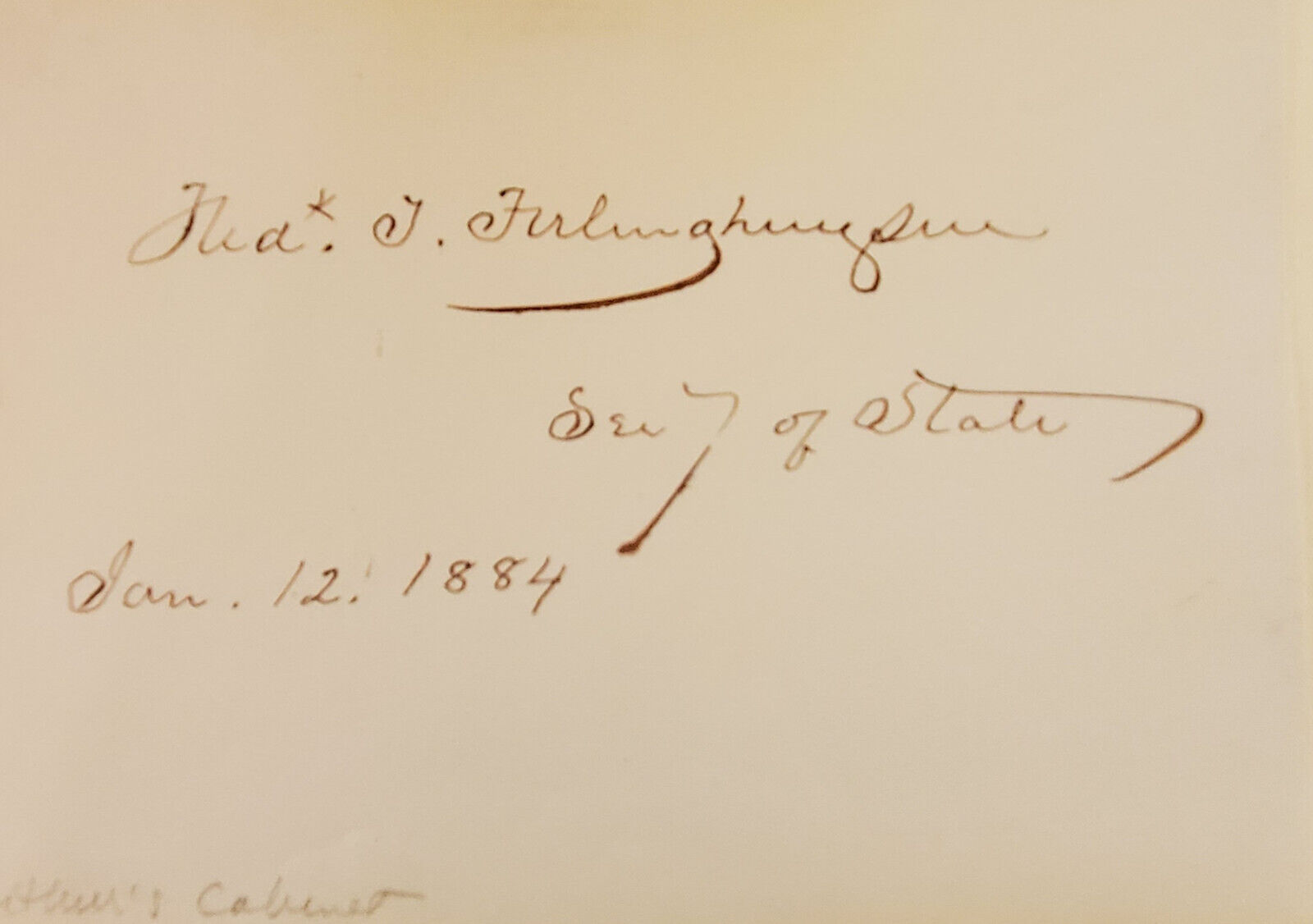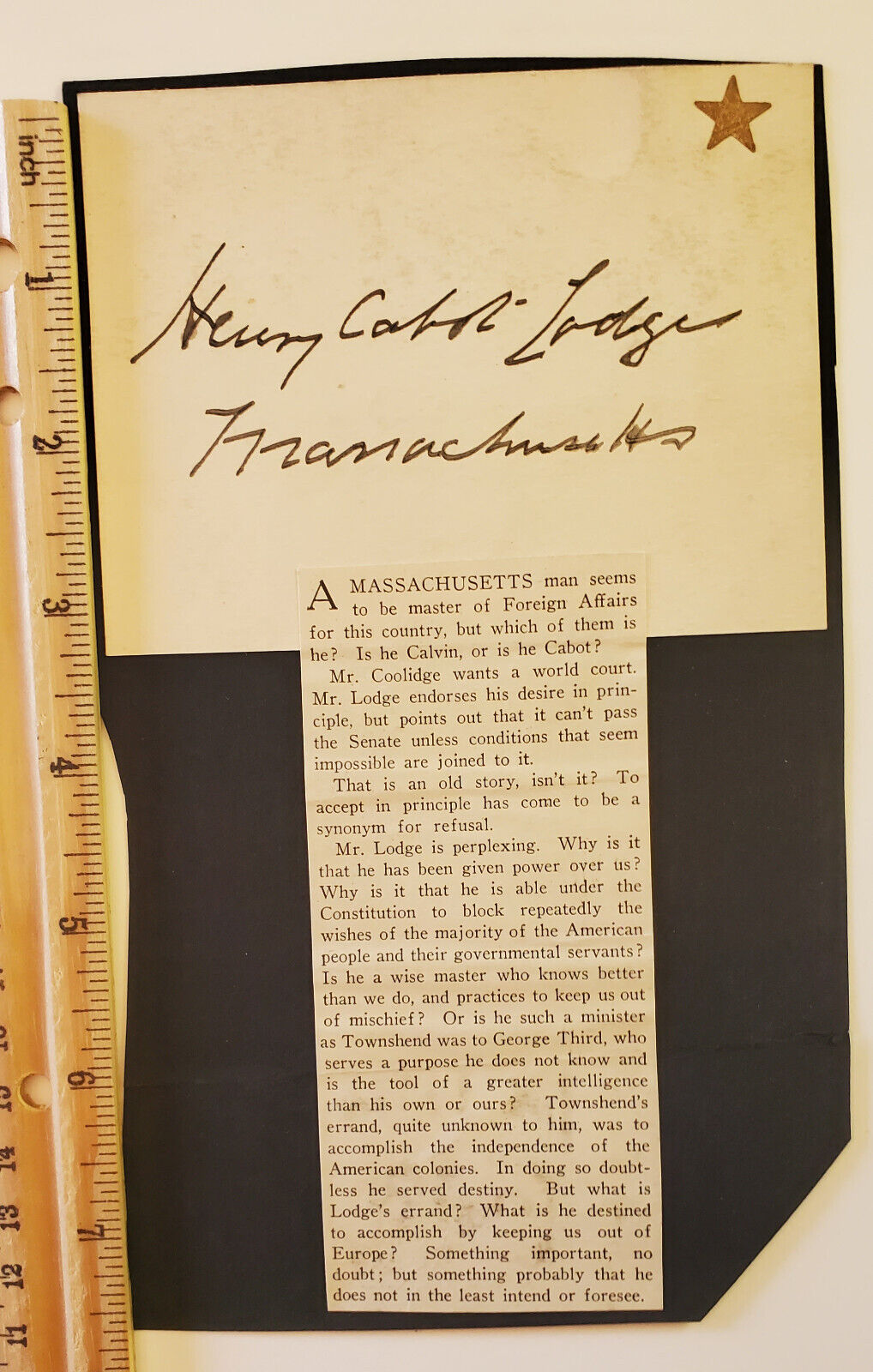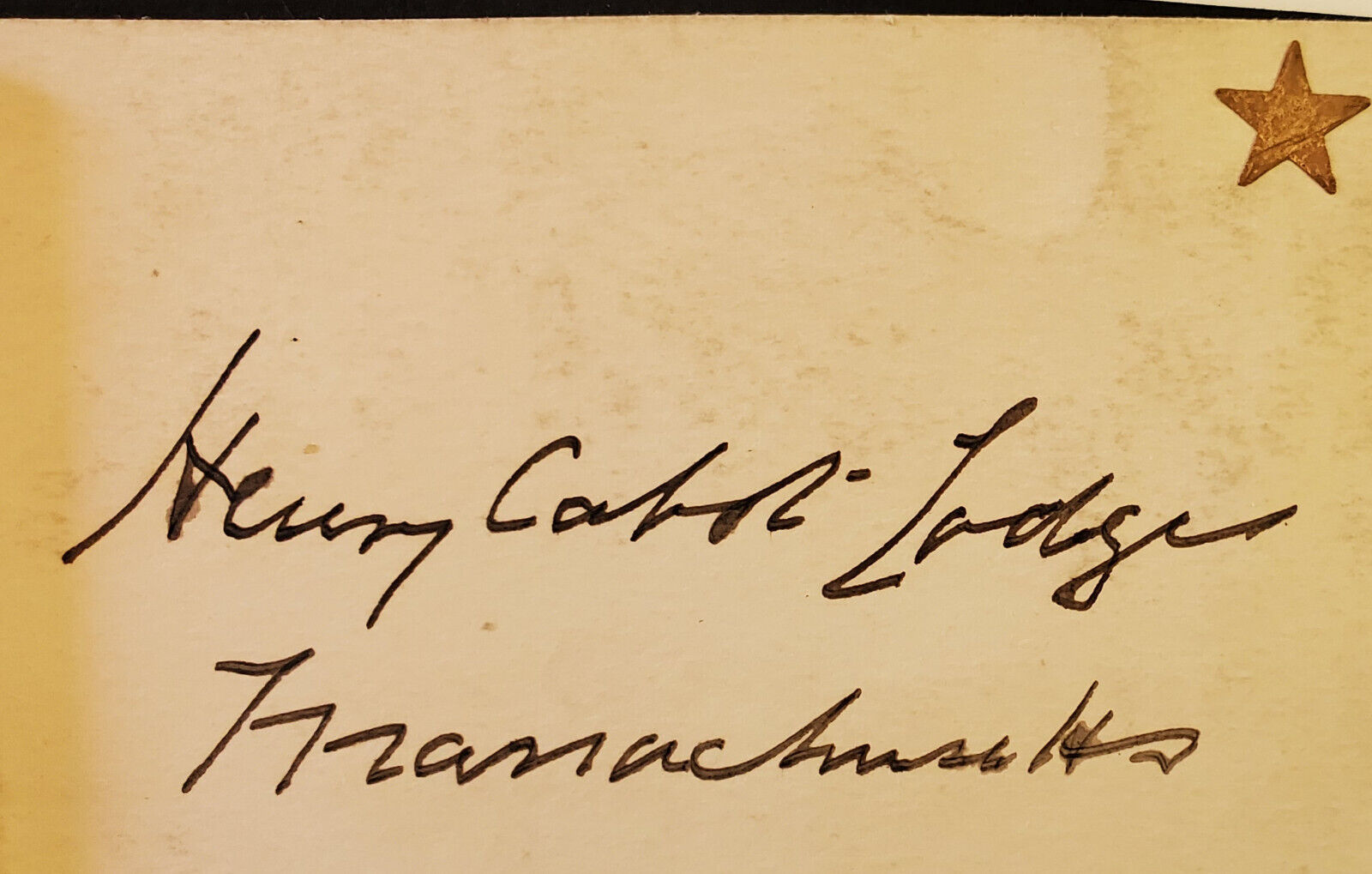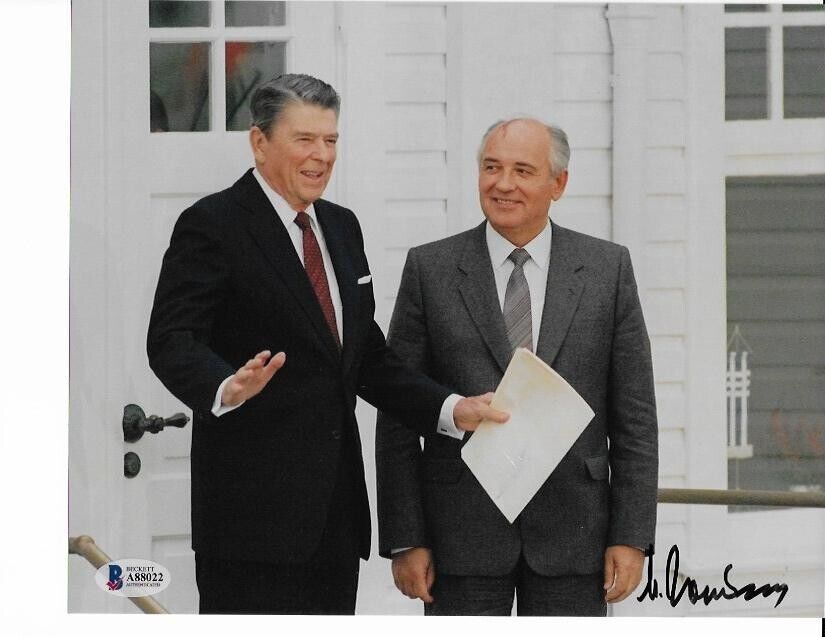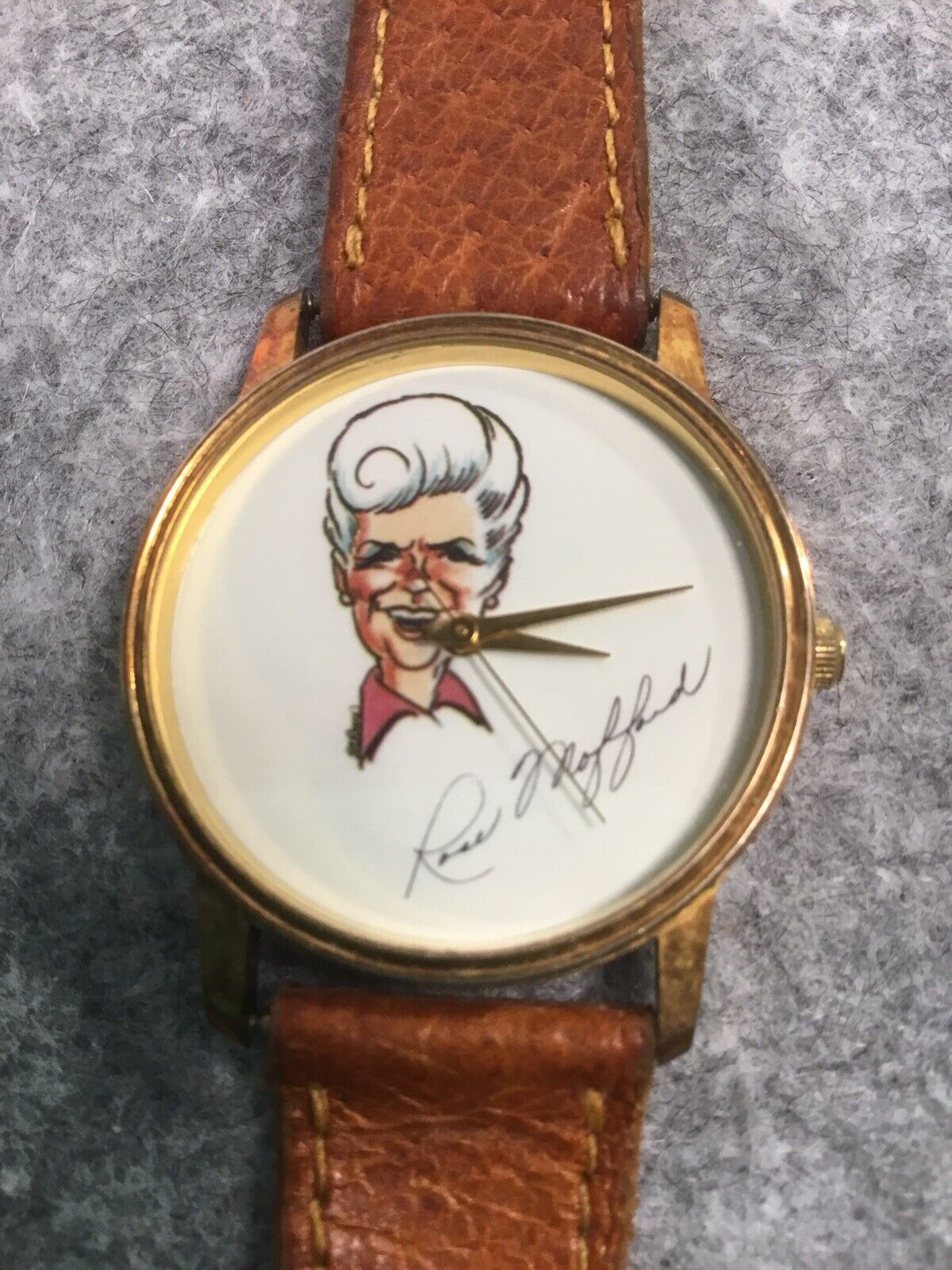-40%
Henry Cabot Lodge Sr/Jr & GG Grandfather Frederick Theodore Frelinghuysen Lot
$ 29.01
- Description
- Size Guide
Description
A nice lot, Henry Cabot Lodge, Jr. was a later part of the 20th century political household name and his 100+ year earlier great great grandfatherFrederick Theodore Frelinghuysen
also a household name and a cabinet member under the Chester A. Arthur administration. I have also added Henry Cabot Lodge, Sr. mounted to remnants of earlier album page. 3 autographs in lot.
From Wikipedia:
Henry Cabot Lodge Jr.
(July 5, 1902 – February 27, 1985) was an American diplomat and Republican
United States senator
from
Massachusetts
in both Senate seats in non-consecutive terms of service and a
United States ambassador
. He was considered for the vice presidency, most significantly in
1952
by
Dwight Eisenhower
. Later, largely due to Eisenhower's advice and encouragement, he ended up being chosen as the
Republican
nominee for
Vice President
in the
1960 presidential election
alongside incumbent Vice President
Richard Nixon
. The Republican ticket narrowly lost to Democrats
John F. Kennedy
and
Lyndon B. Johnson
. In 1964, Lodge won by a plurality a number of that years‘ party presidential primaries and caucuses on the strength of his name, reputation, and respect among many voters, though the nomination went to
Barry Goldwater
. This effort was encouraged and directed by low-budget but high-impact grassroots campaign by academic and political amateurs.
Born in
Nahant, Massachusetts
, Lodge was the grandson of Senator
Henry Cabot Lodge
and the great-grandson of Secretary of State
Frederick Theodore Frelinghuysen
. After graduating from
Harvard University
, Lodge won election to the
Massachusetts House of Representatives
. He defeated Democratic Governor
James Michael Curley
in 1936 to represent Massachusetts in the United States Senate. He resigned from the Senate in 1944 to serve in Italy and France during World War II. Lodge remained in the
Army Reserve
after the war and eventually rose to the rank of major general. In 1946, Lodge defeated incumbent Democratic Senator
David I. Walsh
to return to the Senate.
He led the
Draft Eisenhower movement
before the
1952 election
and served as Eisenhower's campaign manager, ensuring that his candidate triumphed at the
1952 Republican National Convention
. Eisenhower defeated Democratic nominee
Adlai Stevenson II
in the general election, but Lodge lost his own
re-election campaign
to
John F. Kennedy
. Lodge was named as
ambassador to the United Nations
in 1953 and became a member of Eisenhower's Cabinet. Vice President
Richard M. Nixon
chose Lodge as his Vice-Presidential running mate in the 1960 presidential election, but the Republican ticket lost the close election.
In 1963, President
John F. Kennedy
appointed Lodge to the position of
Ambassador to South Vietnam
, where Lodge supported the
1963 South Vietnamese coup
. He continued to represent the United States in various countries under President
Lyndon B. Johnson
, President Nixon, and President
Gerald Ford
. Lodge led the U.S. delegation that signed the
Paris Peace Accords
with
North Vietnam
, leading to the end of the
Vietnam War
. He died in
Beverly, Massachusetts
in 1985.
++++++++++++++++++++++++++++++++++++++++++++++++++++++++++++
Frederick Theodore Frelinghuysen
(August 4, 1817 – May 20, 1885)
[1]
was an American lawyer and politician from New Jersey who served as a U.S. Senator and later as
United States Secretary of State
under President
Chester A. Arthur
.
Frelinghuysen was born in
Millstone, New Jersey
, to Frederick Frelinghuysen (1788–1820) and Mary Dumont. His father died when he was just three years old, and he was adopted by his uncle,
Theodore Frelinghuysen
(1787–1862).
His grandfather,
Frederick Frelinghuysen
(1753–1804), was an eminent lawyer, one of the framers of the first
New Jersey Constitution
, a soldier in the
American Revolutionary War
, a member (1778–1779 and 1782–1783) of the
Continental Congress
from New Jersey, and from 1793 to 1796 a member of the
United States Senate
.
His uncle, Theodore Frelinghuysen, was
Attorney General of New Jersey
from 1817 to 1829, was a U.S. Senator from New Jersey from 1829 to 1835, was the
Whig
candidate for
Vice President of the United States
on the
Henry Clay
ticket in the
1844 Presidential election
, and was
Chancellor
of
New York University
from 1839 until 1850 and president of
Rutgers College
from 1850 to 1862.
Frelinghuysen graduated from
Rutgers College
in 1836, and studied law in Newark with his uncle, to whose practice he succeeded in 1839, after he was admitted to the bar.
Career
Following his admission to the bar, he became attorney for the
Central Railroad of New Jersey
, the
Morris Canal and Banking Company
and other corporations.
Political career
According to
The New York Times
, Frelinghuysen was a member of the
Whig Party
until joining the
Republican Party
upon its inception. He was also crucial in establishing New Jersey's state GOP.
During the
American Civil War
, Frelinghuysen was active in public office rather than joining the Union Army. He was a delegate in 1861 to the Peace Congress, and appointed Attorney General of New Jersey by Governor Charles S. Olden that year to serve in the post until 1867. Frelinghuysen was encouraged by some to run for governor in 1862, though declined.
Frelinghuysen was a delegate to the
1860 Republican National Convention
from New Jersey and from 1861 to 1867 was
Attorney General of New Jersey
. He was a delegate to the
Peace conference of 1861
in Washington, and in 1866 was appointed by the
Governor of New Jersey
, as a
Republican
, to fill a vacancy in the United States Senate. In the winter of 1867, he was elected to fill the unexpired term, but a Democratic majority in the
New Jersey Legislature
prevented his re-election in 1869.
In 1870, he was nominated by
President
Ulysses S. Grant
, and confirmed by the Senate, as
United States Ambassador to the United Kingdom
to succeed
John Lothrop Motley
, but declined the mission. From 1871 to 1877 he was again a member of the United States Senate, in which he was prominent in debate and in committee work, and was chairman of the
U.S. Senate Committee on Foreign Affairs
during the
Alabama Claims
negotiations.
He was a strong opponent of the
Reconstruction
measures of President
Andrew Johnson
, for whose conviction he voted (on most of the specific charges) in the
impeachment
trial. Frelinghuysen supported the
Radical Republicans
' program for Reconstruction that emphasized a harsh treatment of former
Confederates
. He later allied with the GOP Stalwart faction whose members tended to utilize corruption/
patronage
effectively, though was considered to have a clean record.
He was a member of the joint committee which drew up and reported (1877) the Electoral Commission Bill, and subsequently served as a member of the
Electoral Commission
that decided the
1876 Presidential election
. As a
Republican
, he voted with the eight-member majority on all counts.
U.S. Secretary of State
On December 12, 1881, he was appointed
United States Secretary of State
by President
Chester A. Arthur
to succeed
James G. Blaine
, and served until the inauguration of President
Grover Cleveland
in 1885.
Upon taking the post, Frelinghuysen was tasked with resolving a number of consequences resulted by the actions of his predecessor Blaine. Taking a pacifistic and patient approach, he shared the vision held by
William H. Seward
of the United States dominating the global market in setting an example for other nations to follow, he withdrew the U.S. from the
War of the Pacific
between
Chile
and
Peru
in which his predecessor unsuccessfully backed the Peruvians.
Frelinghuysen's other actions included canceling a scheduled Pan-American conference against President Arthur's wishes that Blaine had originally planned. In addition, he negotiated a treaty change with
Hawaii
that allowed for a naval base for the U.S. in
Pearl Harbor
, which was later known for being bombed by
Japan
in
World War II
.
In contrast to his predecessors in the position of U.S. Secretary of State, Frelinghuysen proved unable to urge
Great Britain
to modify the Clayton-Bulwer Treaty terms in a re-negotiation attempt and instead pushed through a treaty with
Nicaragua
that would permit the construction of a canal in the country under joint ownership. However, it was withdrawn later during the presidency of
Grover Cleveland
by the U.S. Senate, which did not ratify it. Other efforts rejected by Congress included proposals to negotiate reciprocity
Spain
,
Mexico
, and Santo Dominigo, in addition to opening an international consortium between the Congo, U.S. and other countries.
Frelinghuysen served in the post until the end of President Arthur's term, effectively resigning in early March 1885.
After his term as Secretary of State Frelinghuysen returned to his home in
Newark
where he died less than three months after retiring.
